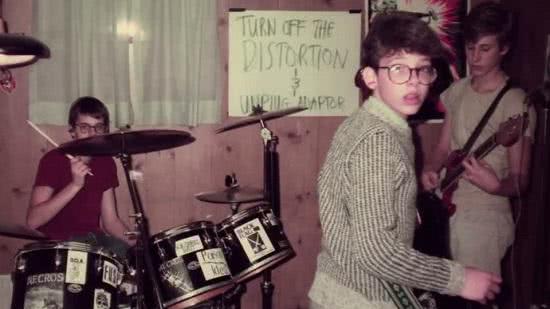Since its release in 1991, Slint’s Spiderland remains one of indie rock’s most sacred texts, as well as one of the most enigmatic.
For that reason, it lends itself well to an investigative documentary: who were these four young men, their heads above water and smiling in a lake as captured in the black-and-white photograph on the LP’s cover? How was a recording so musically intricate and emotionally charged borne from Louisville, Kentucky’s punk/hardcore scene? How and why is it so distinctive compared to the band’s debut, Tweez?
Lance Bangs’ Breadcrumb Trail, befitting its title (named after the album’s opening track) is more concerned with the process than the end result; the recording sessions of Spiderland, documented in a few short photo-montages, register as a footnote. The album itself is distinguished primarily by prodigious musical skill (not for nothing is the band credited as forbears of ‘math rock’) and an acute sense of alienation, though nothing in the bands’ family lives suggests an influence on the record’s darkness; rehearsals took place in the basement of drummer Britt Walford’s suburban home with the approval of his parents, both of whom appear as phenomenally chill interviewees.
The most salient element in the confluence of the band, from all evidence, is the town of Louisville itself. “People from Louisville are fucking crazy, they’re just insane,” says Ian MacKaye (Fugazi, Minor Threat) at one point, almost in defeat. Breadcrumb Trail never really articulates precisely what made the city so peculiar, but the schism between the townspeople’s benign wholesomeness and its often volatile music scene is vividly etched. And if the film ultimately fails to demystify Spiderland, it’s fortunately not for a lack of critical distance that the mysteriousness of the record remains intact.
3.5/5 stars
Breadcrumb Trail is showing at Sydney Underground Film Festival on Saturday September 6.

































